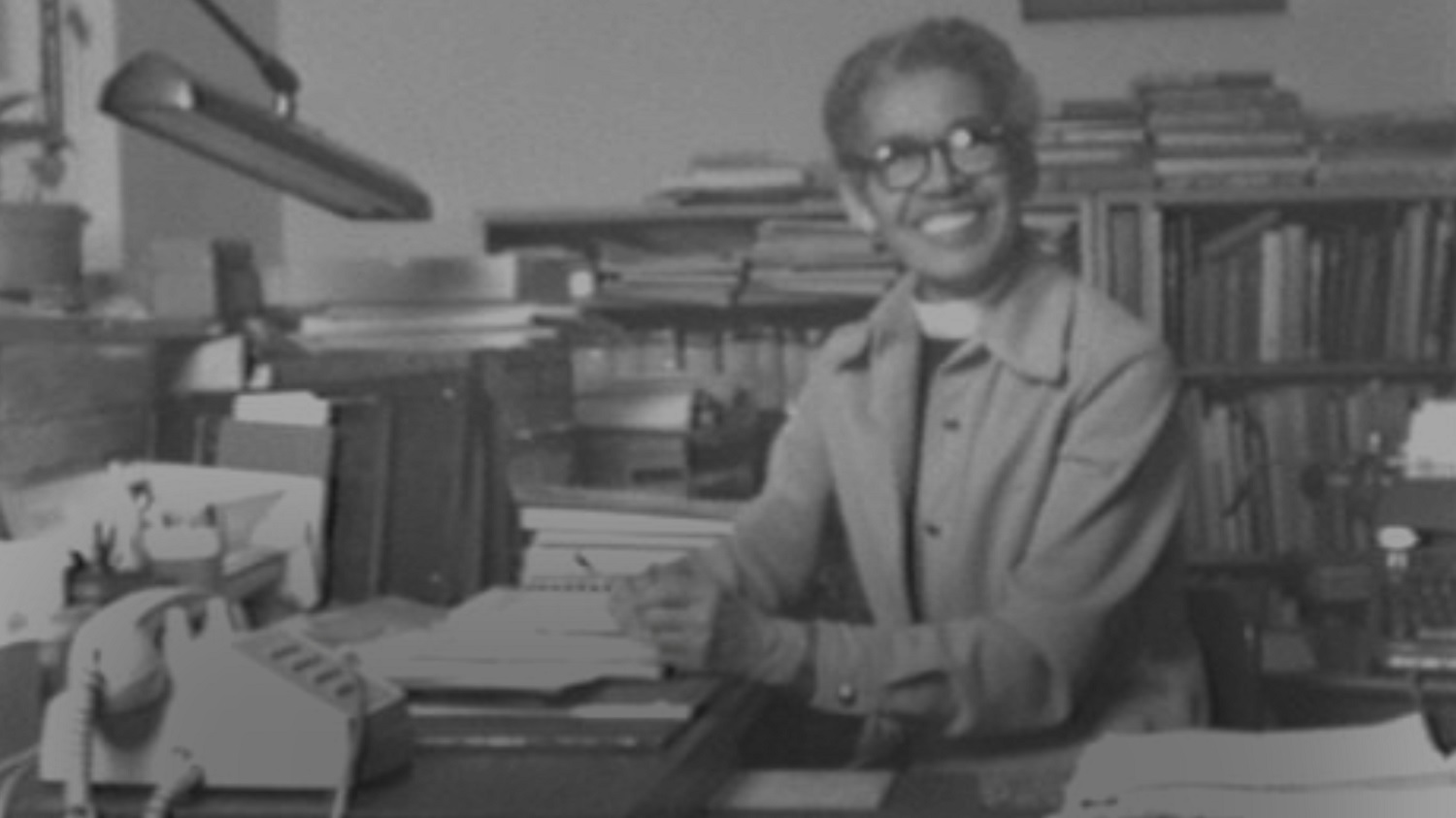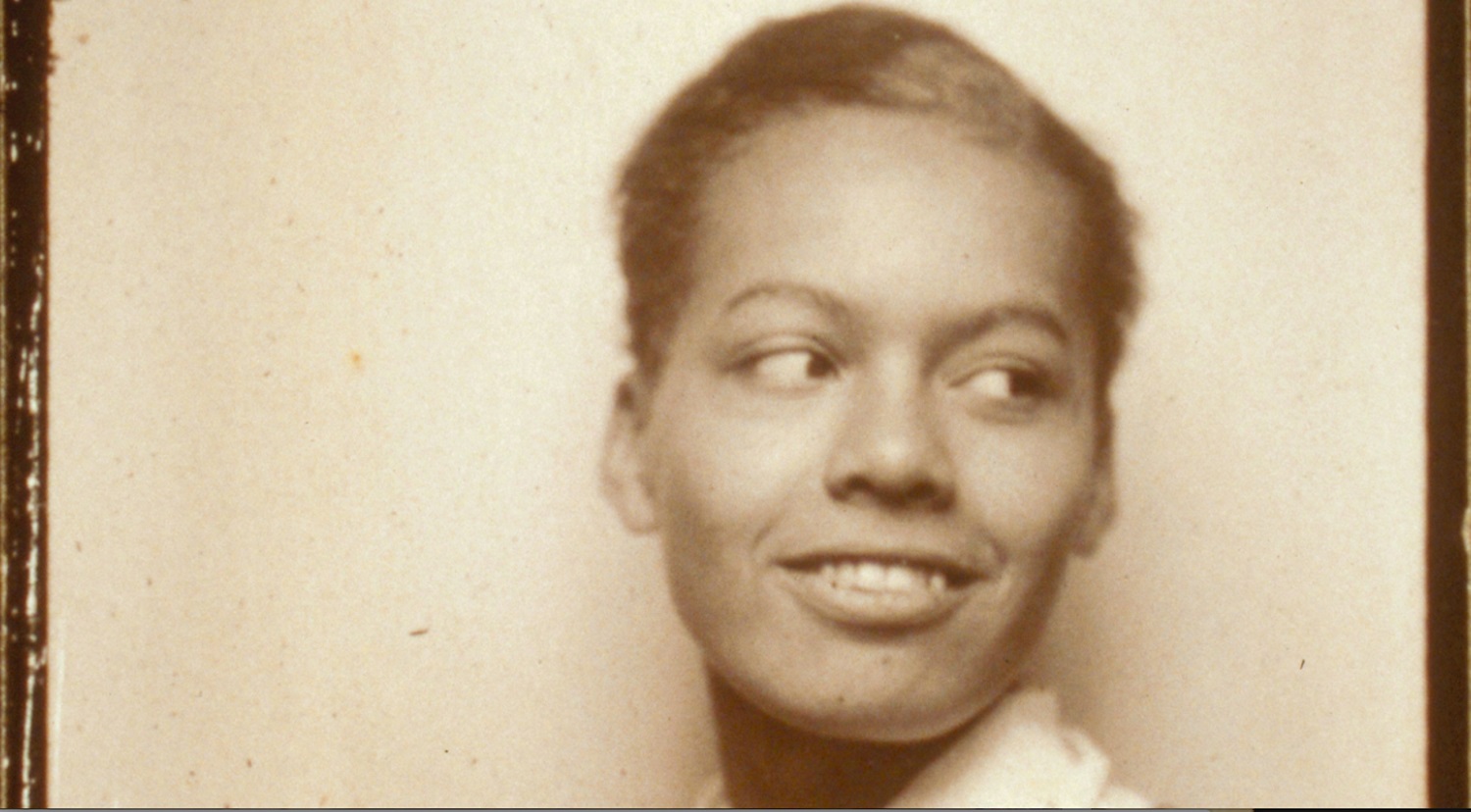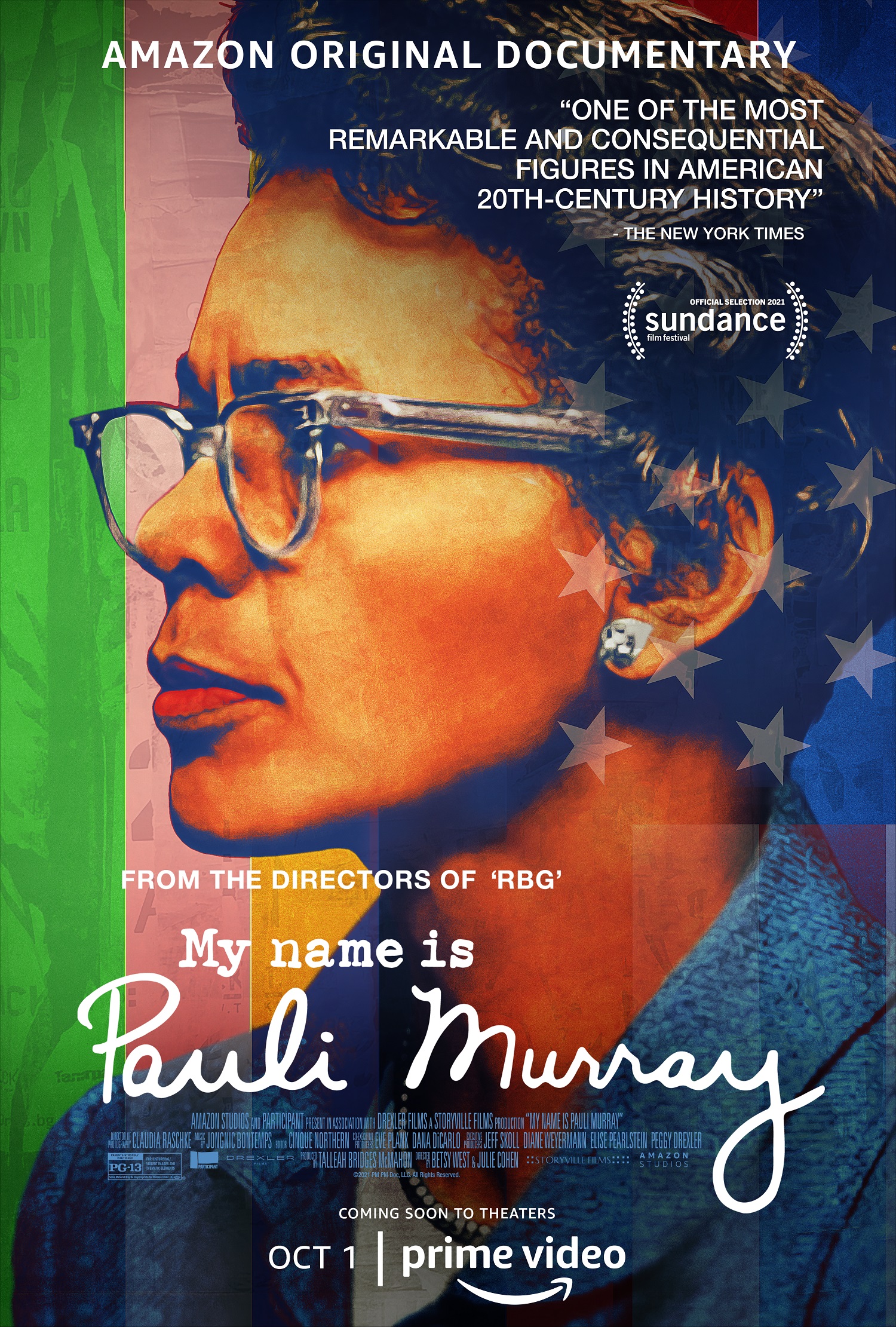Remembering the trailblazing life of queer Black activist Pauli Murray
As documentary My Name Is Pauli Murray drops on Amazon Prime, Lerone Clarke-Oliver explores the legacy of an ahead-of-the-curve queer feminist born in 1910

Words: Lerone Clarke-Oliver; pictures: Amazon Studios
A lawyer, activist, writer, scholar, poet, and priest, Anna Pauline “Pauli” Murray, an African-American lesbian (she would sometimes go by the name Pete when presenting as a man while ‘travelling’) was a queer feminist born in 1910.
Murray fought against race, sexuality, and gender discrimination and is perhaps the greatest civil rights activist you are unlikely to know. Murray was instrumental in connecting civil rights, gay rights, and women’s rights and was critical to so many of the freedoms and rights we enjoy today. Told largely in Murray’s own words, My Name is Pauli Murray is a candid recounting of a unique and extraordinary journey and serves to answer the question: ‘How can one person be so pivotal, but their name is one we never learn?’

Murray’s life and activism appear as the foundation, the prelude to the names we’re more familiar with today; Langston Hughes, James Baldwin, Martin Luther King Jr., and Rosa Parks. Yet, 15 years prior to Rosa Parks refusing to relinquish her bus seat, an entire decade before the US Supreme Court overturned separate-but-equal legislation, Murray was already knee-deep fighting against social injustice. Rejected by the University of North Carolina for being Black, and arrested for refusing to move to the back of a bus, Murray didn’t dodge conflict, even if there was no precedent or model.
In the 1930s and 40s, Murray challenged racial segregation within the education system and notably, public transport. In the 1950s and 60s, she challenged the Civil Rights Movement to recognise the accomplishments of Black women and the “double discrimination” that minority women face. As a lawyer, policy analyst and legal scholar Murray defied convention by stubbornly carving out her place in a hostile industry dominated by men. By the 1970s she took on the church, confronting the gender-based policies that limited roles open to women. Murray pioneered the ideology that God has no gender, God is not definable and we are made in that image. She coined the term Jane Crow, which demonstrated Murray’s belief that Jim Crow laws also negatively affected African-American women. Murray’s accolades are so, so long – it’s an understatement to say Murray shaped landmark litigation, changed culture, and shifted consciousness around race and gender equity. A true Black human rights pioneer. And she has been ignored.
Raised as a Black woman in the segregated South, Murray wrestled with broader notions of gender identity. What directors Besty West, Julie Cohen, and producer Talleah Bridges McMahon have done so brilliantly with My Name is Pauli Murray is frame the reality of life for a young, Black, queer and hungry intellectual in 1920s and 30s America. The film is decorated with her ruminant poetry that pulls you into Murray’s world – a chaotic and bigoted landscape, made sense of through her ability to communicate and express her hope, longing, and desires. Murray understood, intrinsically, in ways that we may take for granted today, what it was to exist beyond previously accepted categories and cultural norms. Both Murray’s personal path and tireless advocacy foreshadowed some of the most politically consequential issues of our time.

In 1944 Murray attended Howard University School of Law as the only woman in that year and graduated first in her class. She earned a master’s of law degree the next year, from the University of California-Berkeley School of Law. At Berkeley, she wrote a thesis titled The Right to Equal Employment Opportunity, which was the first comprehensive study on the subject. The NAACP adopted her approach and borrowed the arguments she made in a seminar paper she wrote while a law student. Such was her passion she is described in the film as having “great nerve to confront discrimination when there was great risk [of lynching] in doing so” but Murray, herself states: “with incidence [of brutal discrimination] piling up, I’d either go berserk or I’d find a way to protest.”
My Name is Pauli Murray isn’t always easy viewing: Murray’s world was unforgiving, uncaring, and unjust. But what stands out is a person who would see injustice and think, ‘this is why it is wrong, no one will listen to a queer Black woman, but they may listen to a lawyer, a priest, a scholar – so that’s who I’ll be to change the world around me.’

How has Murray’s story been so forgotten? David J. Johns, executive director of the National Black Justice Coalition, best explains it. He previously told NBC: “As long as there have been Black people, there have been Black LGBTQ and same-gender-loving people. Racism combined with the forces of stigma, phobia, discrimination, and bias associated with gender and sexuality have too often erased the contributions of members of our community.”
It would seem, while the world was perhaps ready to start a conversation that evolved into the civil rights movement, it appears, the movement and its spectators were not yet prepared to simultaneously start a conversation about gender and sexuality – or fully embrace someone who thrived outside of cultural norms. Murray’s contribution was welcomed and needed, but she was queer and unapologetically so. Ironically, in a time of commonplace violence and avid respectability politics, her story suffered the most insidious kind of violence: erasure.
This documentary is only possible because of Murray’s own meticulous record-keeping of her life. It begs the question: how will we be remembered with the clippings of our own lives we’ve shared with the world in the social media age?
My Name is Pauli Murray holds close to Murray’s extraordinary journey toward self and is a multidimensional portrait of an evolving figure who wouldn’t accept the status quo, a human who knew that like people, solutions aren’t fixed, but fluid. After watching My Name is Pauli Murray I was compelled to look up the definition of ‘unsung hero’. According to collinsdictionary.com it’s “one who does great deeds but receives little or no recognition for them”.
An obvious and lackluster summary that fits, but does little to honour the consequences of this trailblazing life, a life that has altered the course of history. We will remember you, Pauli Murray.
My Name Is Pauli Murray is available to watch on Amazon Prime UK now.
